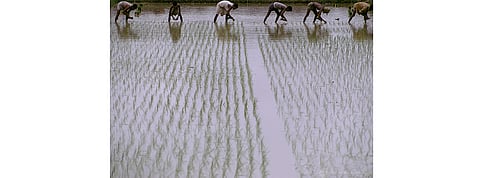

Bangladesh is seeking support from the International Finance Corporation (IFC) to procure 35 MW to 50 MW solar power capacity through a competitive bidding process. The pilot project will be tendered as per an agreement IFC signed with the Sustainable and Renewable Energy Development Authority (SREDA) of Bangladesh.
According to the IFC, in its role as the lead transaction advisor to SREDA, the World Bank Group member will help structure and tender the project through a transparent process under a public-private partnership (PPP) model with an aim to select a credible private sector developer. To be located in Kushtia district, the solar project will demonstrate a viable model for a solar power plant in the country.
"This is a unique concept as it will support the government in creating a viable and sustainable renewable energy model in Bangladesh, using marginal low-lying land to produce solar energy. This model can be repeated across the country," said Wendy Werner, IFC Country Manager for Bangladesh, Bhutan and Nepal. "By engaging the private sector, we aim to promote more investment in renewable energy projects in Bangladesh and reduce reliance on thermal energy."
Currently, fossil fuels account for more than 90% of the country's power supply and the share of renewable energy in the total energy mix of Bangladesh stands at less than 3%. The nation wants to scale it up to 10% by 2021 and double it to 20% by 2030. Availability of land is a challenge for the country's renewable energy dreams, according to the IFC.
Funding for suitable consultants for the Kushtia project will come from the European Commission's Directorate General for International Cooperation and Development, Germany's Federal Ministry of Economic Cooperation and Development and the Sustainable Development Investment Partnership.
In March 2019, the World Bank approved $185 million to support development of 310 MW renewable energy generation capacity in Bangladesh; the plans included a first 50 MW phase of a large scale solar energy park to be implemented by the Electricity Generation Company of Bangladesh (see World Bank's $185mn For Bangladesh RE).
